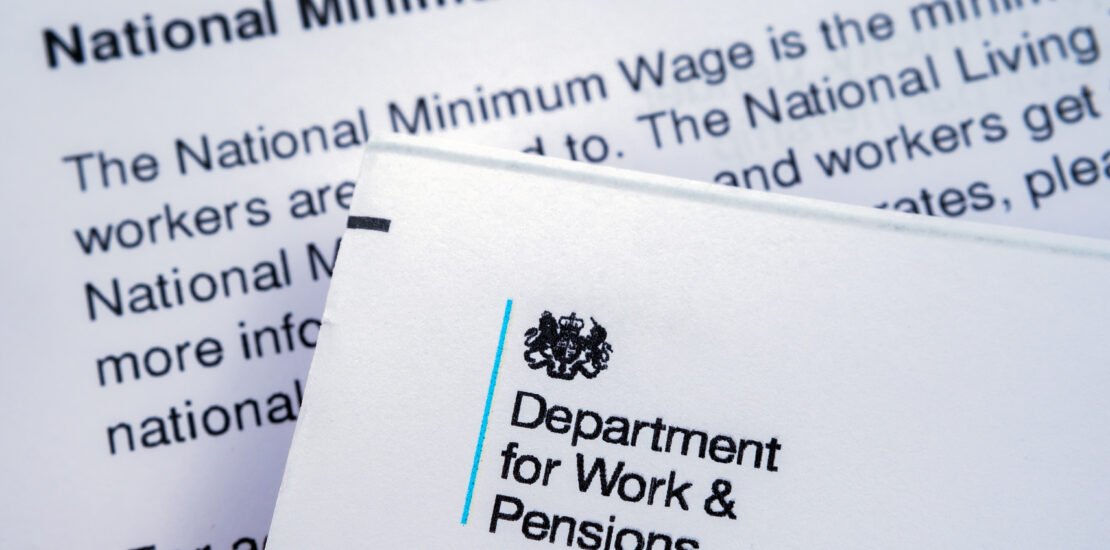- 30th October 2024
- Posted by: Quartz Barristers
- Category: Employment Law, News

The Autumn Budget in October 2024 brought updates to the minimum wage rates, prompting businesses across the UK to assess their payroll strategies. While a wage increase supports workers and boosts morale, it also presents challenges for employers—particularly smaller organisations managing tight budgets.
Beyond the financial implications, minimum wage changes can trigger complex legal and contractual consequences. To navigate these changes confidently, employers should consider engaging with barristers to ensure compliance, mitigate risks, and future-proof their operations.
What the Minimum Wage Changes Mean for Employers
From April 2025, businesses must comply with the new wage thresholds outlined in the budget. Failing to implement these changes correctly can lead to:
- Penalties from HM Revenue & Customs (HMRC).
- Breaches of employment law.
- Reputational damage if staff believe they are being underpaid.
Compliance involves more than just updating pay slips—it requires a review of contracts, policies, and overall workforce planning.
Legal and Contractual Implications of Wage Increases
When minimum wages increase, employers must consider several key legal and contractual factors:
- Contractual Adjustments:
Employment contracts must reflect the new rates where relevant. Any oversight in updating agreements could lead to disputes or claims for back pay. - Impact on Salary Structures:
Raising the minimum wage can cause a ripple effect, where pay gaps between different roles narrow or disappear, potentially leading to dissatisfaction among higher-paid employees. - Compliance Checks:
Employers must ensure compliance with National Minimum Wage legislation. This includes considering all deductions (e.g., uniform costs) and working hours (e.g., travel time or training) that might inadvertently reduce pay below the legal threshold. - Equal Pay Considerations:
Adjusting wages might reveal existing pay inequalities. Employers should take this opportunity to review their pay structures to ensure compliance with the Equality Act 2010. - Budget and Workforce Planning:
Increased payroll costs may necessitate changes to workforce size, working hours, or benefits. These changes must be carefully managed to avoid redundancy claims or breaches of employment law.
How Barristers Can Help
Working with barristers offers employers specialised expertise in managing wage changes and their broader implications. Here’s how:
- Tailored Advice: A barrister can review contracts, policies, and practices to ensure they align with the latest wage requirements and employment law.
- Risk Mitigation: By identifying potential issues, such as pay inequalities or unlawful deductions, barristers can help prevent disputes before they arise.
- Representation: If disputes or claims occur, a barrister can represent employers in negotiations, tribunals, or court proceedings.
- Strategic Planning: Barristers can provide guidance on restructuring or workforce changes, ensuring all actions are lawful and minimise disruption.
Proactive Steps Employers Should Take
To prepare for minimum wage increases, employers should:
- Conduct a Compliance Audit: Review contracts, payroll systems, and policies to ensure they meet legal requirements.
- Communicate Transparently: Keep employees informed about wage changes and how they impact their roles.
- Monitor Pay Equality: Ensure pay structures remain fair and compliant with equal pay legislation.
- Seek Legal Expertise: Engage with a barrister to gain clarity on complex issues and develop a robust strategy for managing wage changes.
Support from Quartz Barristers
Navigating wage increases can be challenging, but with the right legal support, employers can adapt while maintaining compliance and staff satisfaction. At Quartz Barristers, we specialise in employment law and can help employers manage wage changes effectively.
Contact us today to discuss how we can support your business through this transition.
